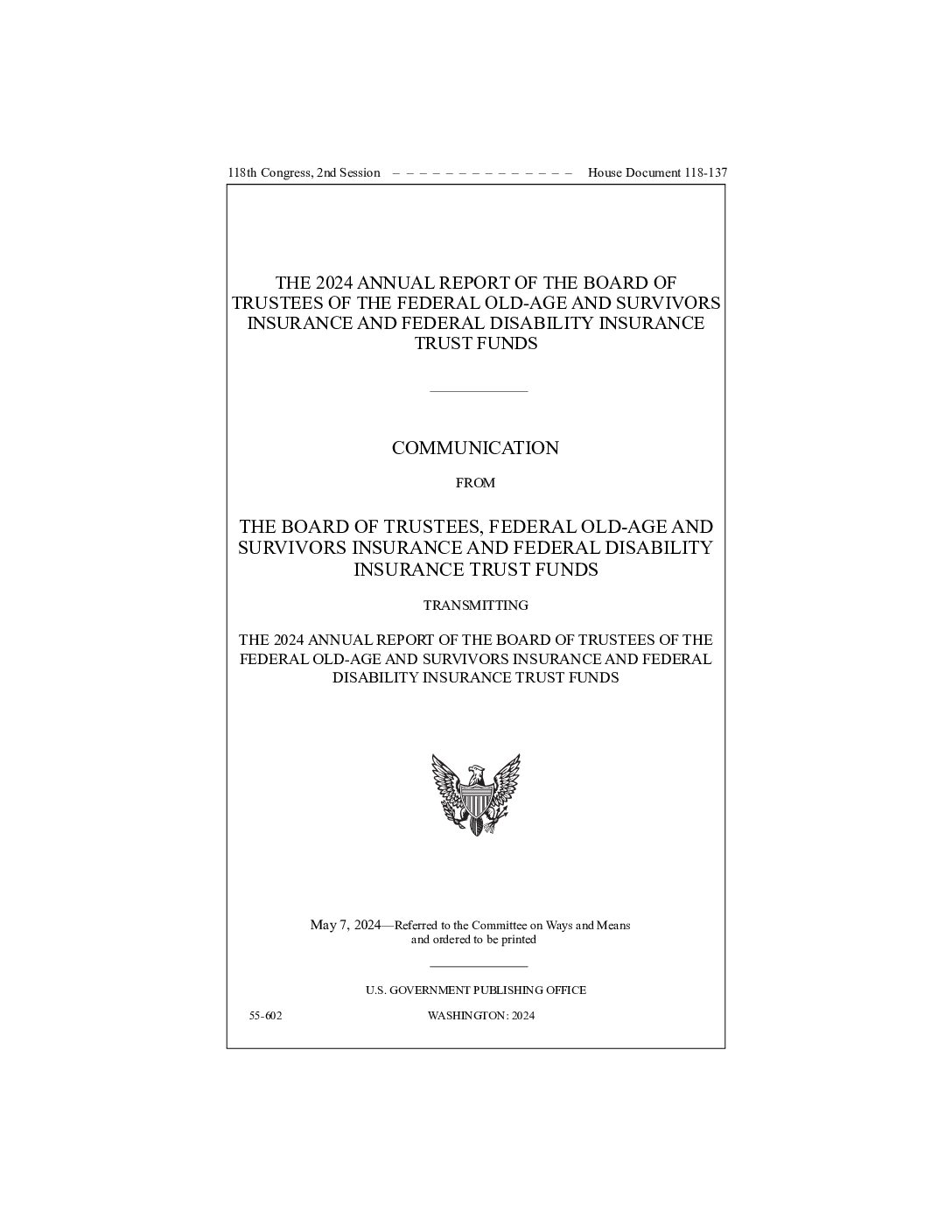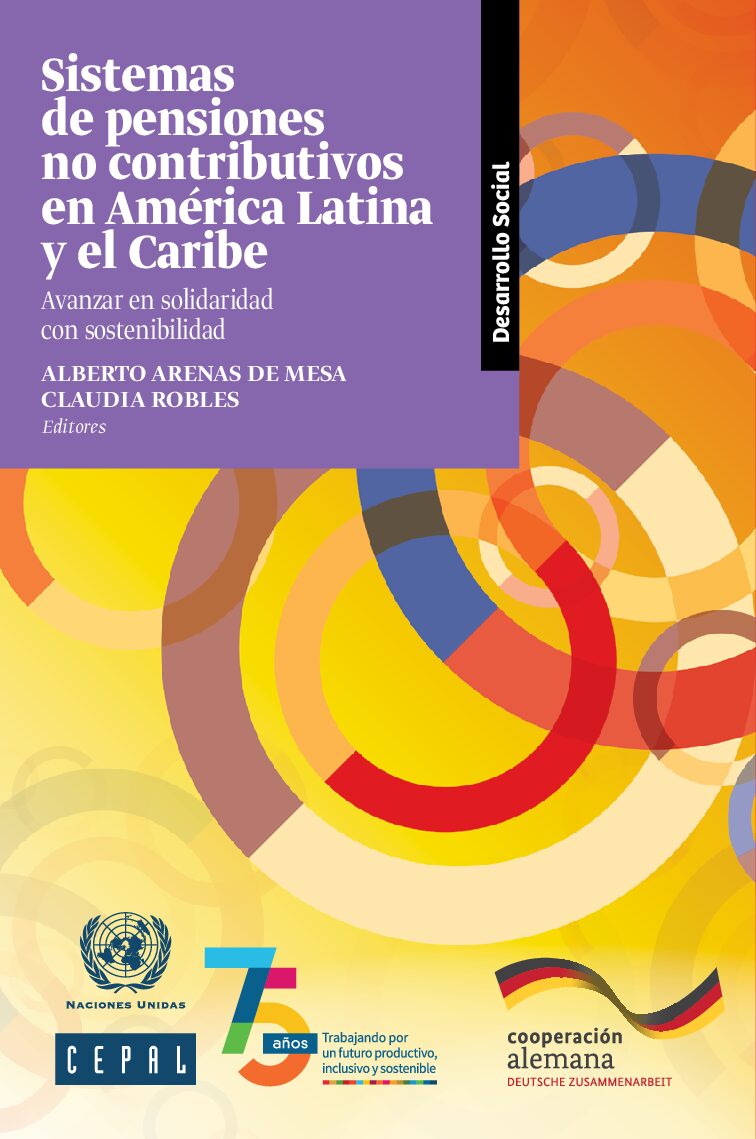The 2024 Annual Report of the Board of Trustees of the Federal Old-Age and Survivors Insurance and Federal Disability Insurance Trust Funds
By Social Security Administration The Trustees Report includes many tables containing historical data and projections. For convenience, we provide the reader with links to view all of these tables in one place, without the accompanying text of the report. Note that the tables in the report generally present results only for every fifth year. Therefore, we also provide links to supplemental tables by single year for readers requiring more detail. Reference should always be made to the published report for...










